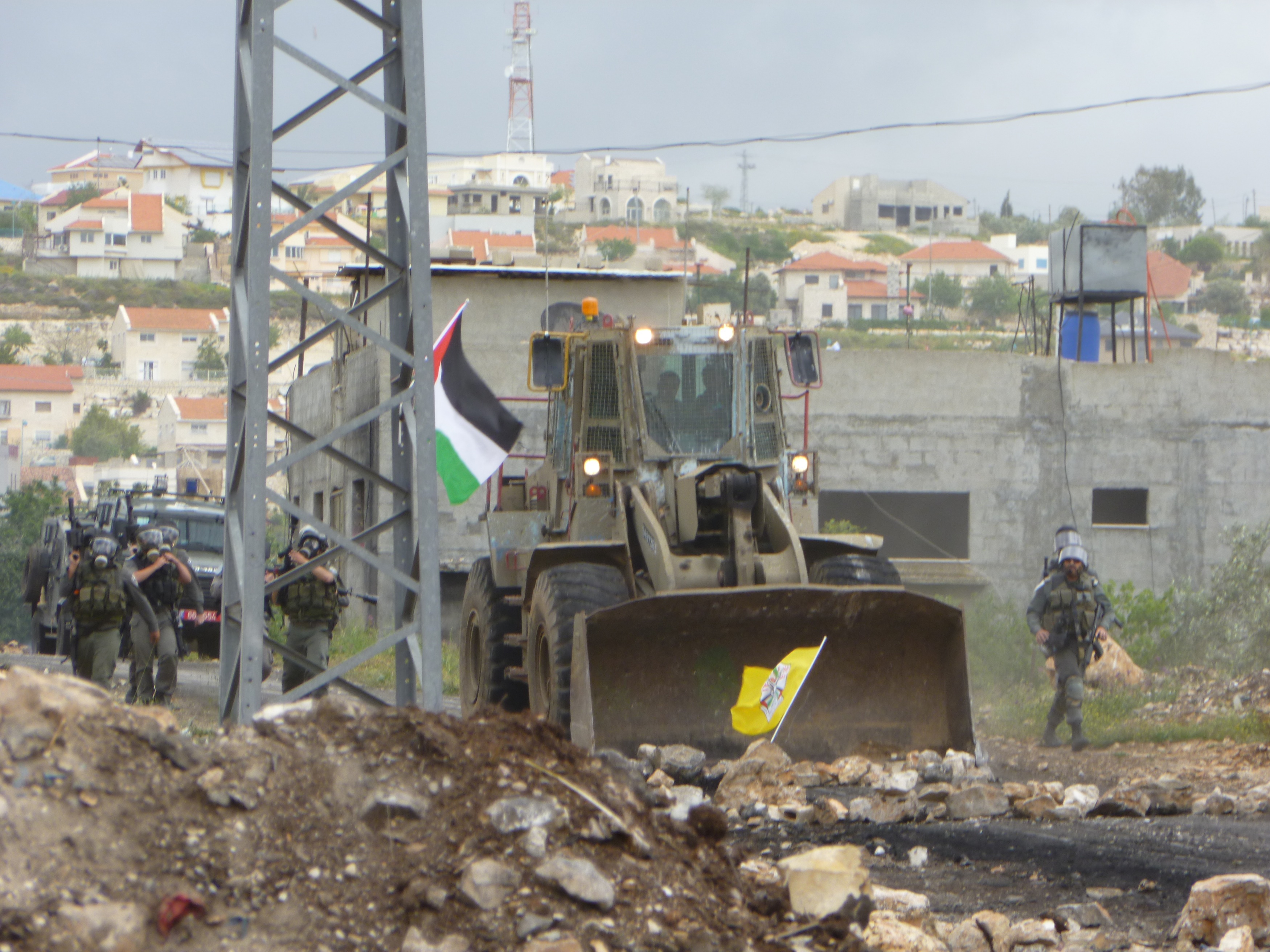Tag: International Women’s Peace Service
-

Collective punishment of Kufr Qaddum by the Israeli military for political activity
29th May 2013 | International Women’s Peace Service | Kafr Qaddum, Occupied Palestine Early on Monday 27 May at 1:30AM three Israeli border police jeeps entered the village of Kufr Qaddum. The border police made their presence known to the villagers by driving slowly through the town center. Additionally, the following night, Tuesday 28 May,…
-
IWPS: International human rights volunteers needed in Palestine
4 June 2011 | International Women’s Peace Service The International Women’s Peace Service (IWPS) is a small team of international female human-rights activists in Palestine. We: Provide accompaniment to Palestinian civilians (including farmers during the annual olive harvest), Document and non-violently intervene in human-rights abuses, Support Palestinians in their non-violent resistance to end the Israeli…
-
Several detained in An Nabi Saleh
07 February 2011 | International Women’s Peace Service On Friday, 5 February, approximately 20 international and Israeli activists joined the residents of the village of An Nabi Saleh in the Ramallah district for the village’s regular non-violent demonstration against land confiscation and Israel’s occupation policies. The village had been placed under curfew since 7am, with…
